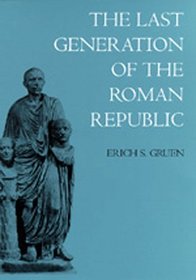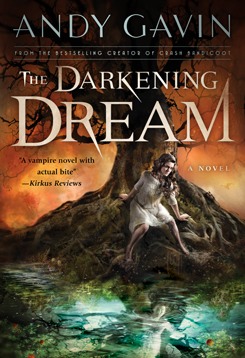 Title: The Last Generation of the Roman Republic
Title: The Last Generation of the Roman Republic
Author: Erich S. Gruen
Genre: History
Length: 596 pages
Read: November 1 – Dec 6, 2013
Summary: Fascinating and detailed
I love to read about ancient history in general, and Roman history in particular, as I’m fascinated by the cultural differences (a.k.a. similarities) and the stark political lessons illustrated again and again (and all too often ignored today). But, for reading this book, I had an even better excuse, as I’m doing research for a new novel: an epic political fantasy set in highly cosmopolitan ancient world (inspired by our own, but different).
Last Gen, being an academic text, focuses entirely on the real Age of Cicero, laser beaming in on politics in the era between the civil wars of Sulla and Julius Caesar. It doesn’t even cover the wars themselves, but makes a solid and intensely researched academic argument about the inevitability (or not) of the fall of the Roman Republic.
For those of you who don’t know, the Roman Republic was a complex, somewhat aristocratic, but essentially democratic civilization that lasted 450 years, took over half the known world, and eventually succumbed not to enemies, but to internal transformation into the Roman Empire. In many ways, these are two distinct states. The history of Rome represents at least 4 states (The Republic, Empire, Western Empire, and Byzantine Empires). Anyway, because of the close resemblance between our own government (no coincidence as the American founding fathers based our constitution on the Roman Republic, even down to naming conventions like… hold your breath… senators), the Republic’s twenty year transition from a state where power derived from the people to a fully autocratic one is terrifying in the least. So why and how did this happen?
Last Gen systematically tackles each source of power in Republic and many of the traditional assumptions as to the foreordained nature of the fall. He argues quite convincingly that the last decades of the Republic, far for heralding the Empire to come betray a state that was essentially conservative in nature and operating more or less as it had for some time — and nearly free of revolutionary forces. In the end, a series of individual moves by individual men unwittingly set into motion catastrophe. The conservative bloc, along with an ambitious tribune, worked so diligently to break up the alliance between Caesar and Pompey (a typical Roman political move) that they forced the two into a situation where armed conflict was the only means by which both could preserve their aristocratic dignity. This might seem like a petty reason to enter into a world war, but to the Roman politician, dignitas was everything. And so has it been through the ages. I discussed some time ago the almost pathetically silly series of events that led Europe into the disastrous World War I (and hence II). Not really very different. Nations, like consuls of Rome, are loathe to back down.
Sigh.
But this makes for a fascinating book that gives a good sense of the complex nature of Roman politics. Would be readers, should however, note that this is dense reading. Nearly every paragraph contains at least one extended list of Roman senators (usually abbreviated) rattled off in example. The prose is almost comically stilted. Gruen has this particular declarative style that takes a bit of getting used to, but is quite wry. This is also not an introductory book and only suitable for those fairly familiar with the basic organization of Republican government. If you don’t know a Praetor from a Quaestor, start somewhere else. But if you do, The Last Generation of the Roman Republic has a lot to say.



